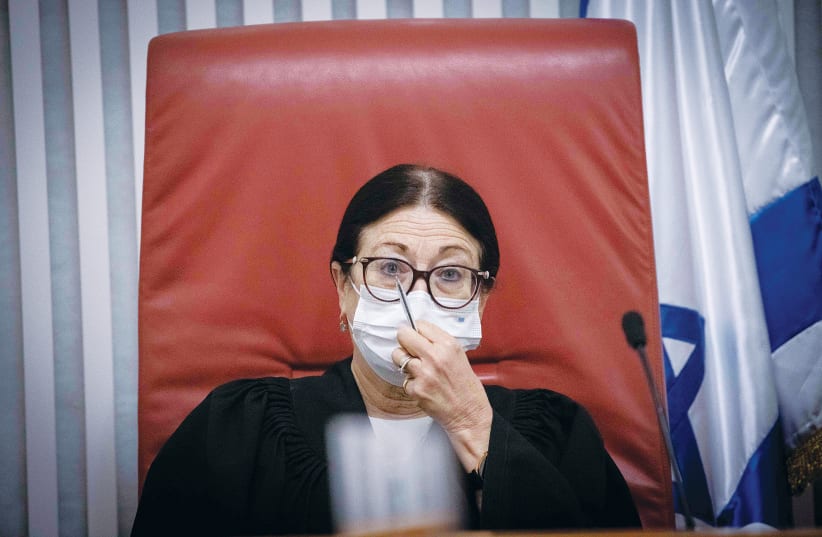The Knesset Constitution, Law and Justice Committee on Monday approved a mix of in-court and virtual-court hearings for prisoners as the legislature tries to start planning for a post-coronavirus, or extended but less serious pandemic, era.
During the three lockdowns of the coronavirus era, there was almost a complete ban on bringing prisoners to courts.
Most prisoner hearings were handled virtually out of concern for both court staff and prisoner safety in terms of spreading infections.
By May, however, any prisoners who wanted in-person court hearings were granted them.
This was important to prisoners’ rights groups, such as the Public Defender’s Office, since the record of virtual-hearing quality for prisoners was often poor, with complaints that they frequently could not see, hear or be heard.
Reflecting concerns that the Israel Prisons Service did not place any extra restrictions going forward on prisoners relating to coronavirus beyond what is placed on regular citizens, committee chairman Gilad Kariv (Labor) stridently questioned officials about any limits on prisoner attendance of in-court hearings.
For example, in one section of the law, there was a reference to the Hebrew word for “quarantine” of a prisoner from being able to physically attend court.
But the actual case related to an already vaccinated prisoner.
Under court regulations, prisoners who come into contact with a confirmed coronavirus-infected person do not have to do the full weeklong quarantine process.
Rather, they need to take two coronavirus tests, 72 hours apart, and are somewhat cordoned off from other prisoners for a 96-hour period until the presumed negative test results come in. But they are only partially separated to the extent that a sick prisoner with the flu would be.
It was important for Kariv to clarify that such vaccinated prisoners do not get fully quarantined and that they should be able to have a basis to attend their court hearings.
The Public Defender’s Office, though critical of earlier limits on prisoners attending their hearings, accepted the newest iteration of the law that gives prisoners a complete choice between in-person and virtual in some cases and requires in-person attendance for substantive hearings.
However, the Public Defender’s Office slammed the second bill the committee heard on Monday and passed in its first reading, which increases the minimum jail-sentence time period to 12 months (with a maximum of seven years) for illegal-weapons possession.
Justice Minister Gideon Sa’ar (New Hope), who has been a major proponent of this bill to deter gun possession and violence – especially in the Arab sector, where he said 90% of weapons violence occurs – praised the passage in the initial reading.
Likewise, Kariv framed passing the law as a way to reduce Arab-sector violence, saying this was a goal of the whole government, with his committee needing to do its part.
However, the bill would fail to reduce crime, especially for first-time offenders, the Public Defender’s Office said, adding that the state should be focused on better enforcement of existing laws as opposed to longer punishment.
Next, the Public Defender’s Office said it was problematic to take discretion away from judges, which makes it harder for courts to distinguish between more serious criminals and mostly normative people caught up in an unusual law-breaking circumstance.
Finally, the Public Defender’s Office said the social impact of the law would be to send more Arab-Israelis to prison for longer jail terms, but it likely would not change the dynamic for criminals who were Israeli Jews.
The Public Defender’s Office said this social phenomenon would harm the legitimacy of law enforcement and the judicial system in the eyes of the Arab sector, which would substantially reduce the policy’s overall effectiveness.
